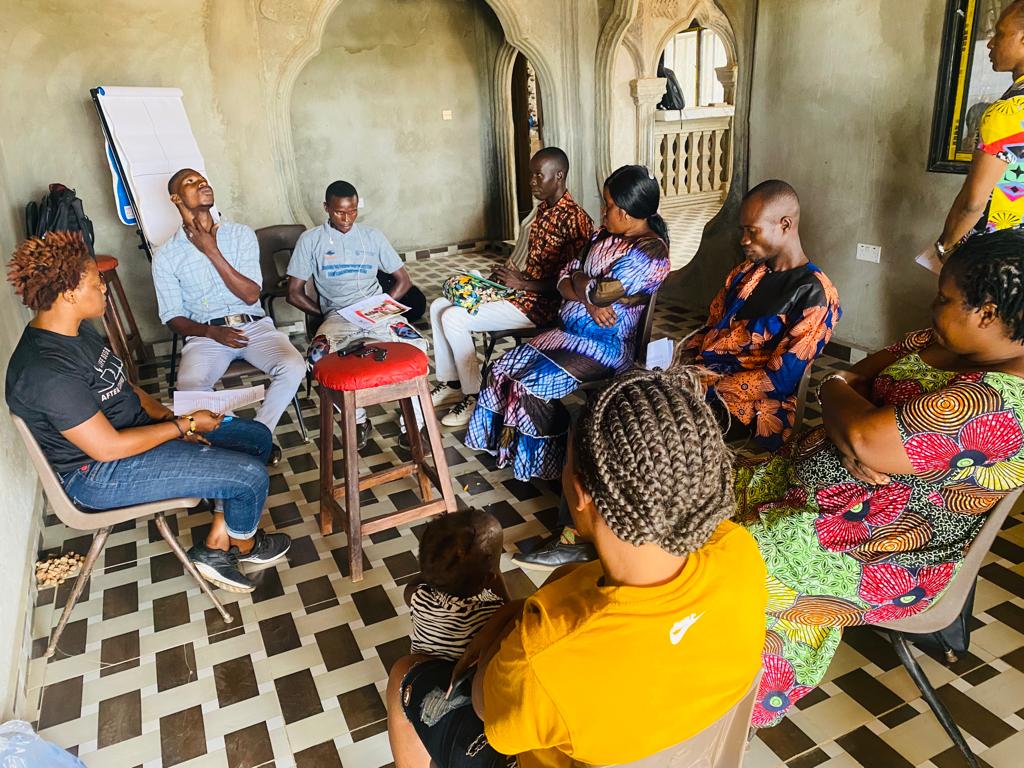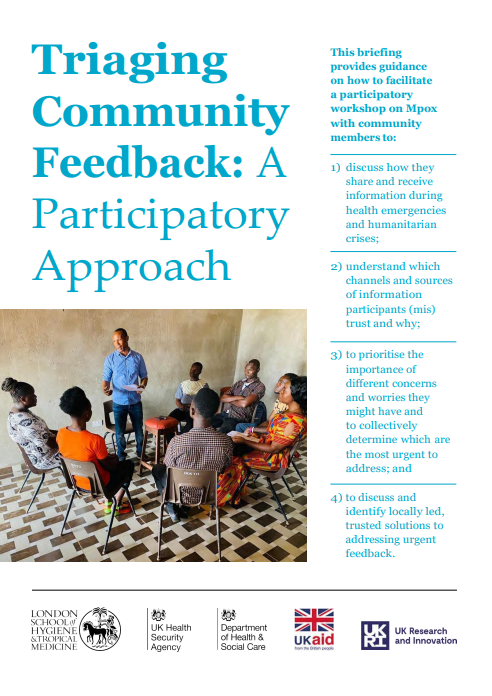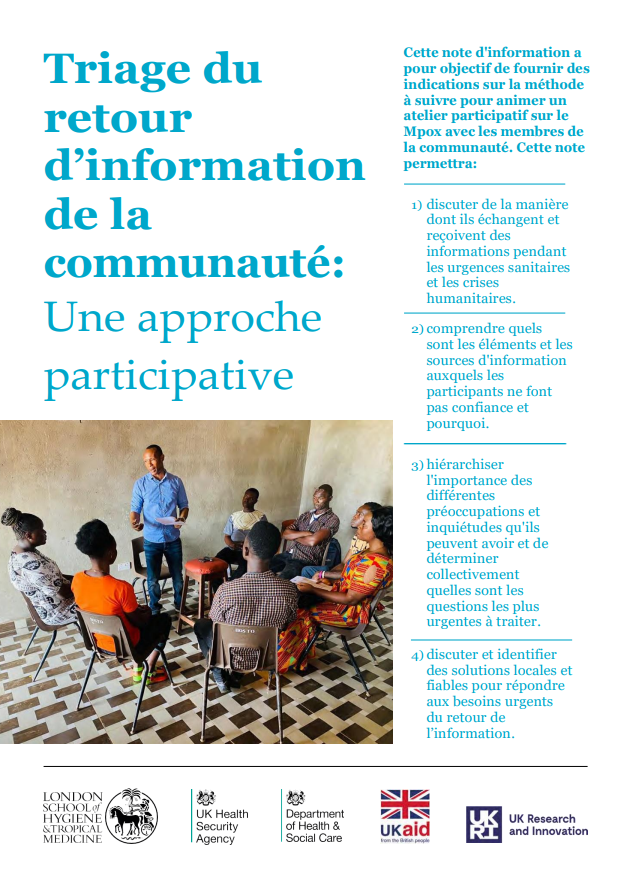
Between 2021 and 2024, the UK-PHRST undertook a study in Sierra Leone and Tanzania to track rumours and concerns about COVID-19 in partnership with the Kambia District Health Management Team (Sierra Leone), National Institute for Medical Research (Tanzania) and Ifakara Health Institute (Tanzania). The aim was to better understand the relative influence and mechanisms of online and offline rumours regarding COVID-19 and to identify solutions to address community concerns during health emergencies. The study used qualitative social science research techniques including community ethnography, interactive workshops, and key informant interviews to gain a deep insight into circulating rumours, how they are shared in social networks and to explore communities’ perspectives of and trust in different sources of information.
As part of the study, the project team developed a community feedback triage toolkit, which can be used to facilitate community workshops and focus group discussions. The toolkit is available in English and French and can be adapted for use in any outbreak.
 A project workshop taking place in Kambia, Sierra Leone
A project workshop taking place in Kambia, Sierra Leone
Marking the conclusion of the project, three dissemination workshops took place in Tanzania and Sierra Leone in March 2024. The workshops brought together key stakeholders in each country to discuss the study’s findings, gather feedback and initiate conversations with policy makers, governments and communities to improve future community-led interventions in outbreak responses.
In Dodoma, Tanzania, the workshop was opened by Ministry of Health (MoH) and National Institute of Medical Research (NIMR) senior staff. Project results and draft conclusions were presented and there was broader discussion of social science, community engagement and infodemic management in Tanzania after the study-specific presentations and discussions.
Two workshops were held in Sierra Leone, the first of which was held at held in Freetown targeting national level stakeholders from the MoH, the National Public Health Agency (NPHA), WHO and international and local NGO’s and CSOs actively involved in Risk Communications and in Community Engagement (RCCE) interventions. The second workshop in Kambia brought together district level stakeholders including officials from the District Health Management Team (DHMT), local authorities, traditional healers, study participants, religious leaders, university students and members of the public. In both workshops, findings from the study were shared with participants followed by plenary sessions to discuss the findings and kick start conversations about how to utilise the findings to inform local RCCE programmes and future research. In addition, the workshops established next steps to address these challenges using innovative methods based on the research project’s data.
This research project was fully funded with UK aid by the UK Department of Health and Social Care via UK-PHRST research funds.


